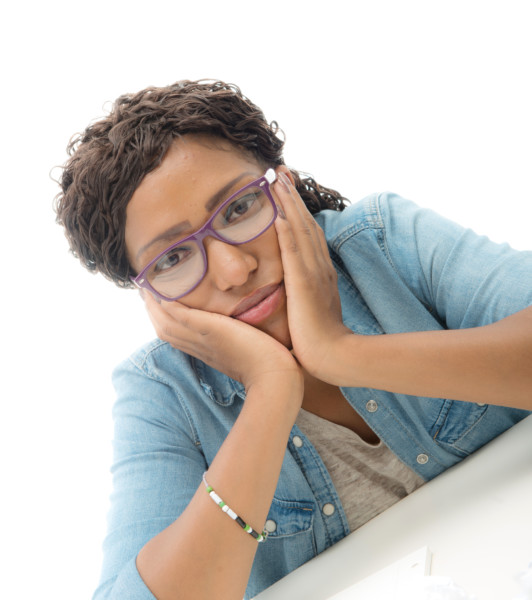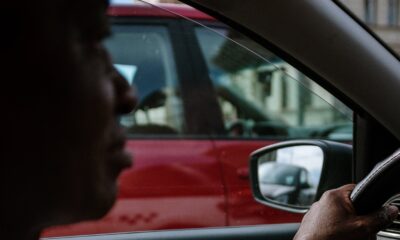Features
Yewande Adeleke: Let’s Talk About the Stigma Surrounding COVID-19
A lack of knowledge about Coronavirus could inadvertently lead to racial discrimination, victim blaming, scathing criticisms, unconfirmed narratives and evolving conspiracy theories. A good example is the eviction of Africans from buildings and hotels in China which was done because the perpetrators believed that Africans pose a greater risk of spreading the virus.
 The COVID-19 pandemic has had far-reaching effects beyond the spread of the virus. In times like this, people worry more about what the future holds. While policy makers, medical experts and researchers are still meandering around on how to demystify the virus, the growing spate of stigmatization remains a major source of concern.
The COVID-19 pandemic has had far-reaching effects beyond the spread of the virus. In times like this, people worry more about what the future holds. While policy makers, medical experts and researchers are still meandering around on how to demystify the virus, the growing spate of stigmatization remains a major source of concern.
In this COVID-19 era, certain classes of people are currently experiencing social stigmatization. Some of them are: those who recently travelled, people of Asian and African descent, health care professionals, the physically ill and those who recently recovered from Coronavirus. Conflicting information being circulated about the pandemic has caused overreaction from the public due to fear and anxiety.
A major cause of stigmatization is ignorance. Ignorance, during a pandemic like this, could constitute grave problems because it can potentially create apprehension and ultimately lead to counter-productiveness of whatever preventive measures are in place. A lack of knowledge about Coronavirus could inadvertently lead to racial discrimination, victim blaming, scathing criticisms, unconfirmed narratives and evolving conspiracy theories. A good example is the eviction of Africans from buildings and hotels in China which was done because the perpetrators believed that Africans pose a greater risk of spreading the virus. This move was also retaliated with the burning of a Chinese factory in Ogun state, Nigeria.
So far, different stereotypes have been attached to Coronavirus: A renowned world leader was known to have tagged it as “the Chinese virus”; some social groups have been labelled as more susceptible to Coronavirus and these groups are prone to various types of stigma in form of social avoidance, denial of housing and healthcare facilities, rejection and more recently, physical violence.
Understandably, people should exercise caution because not much is known about the virus and what is known is still being subjected to constant change and predictions. Indeed, it is a difficult situation to deal with when we wake up daily to rising numbers of COVID-19 incidents.
Social stigma kills faster than the virus itself because victims are cowered into silence, for fear of oppression and discrimination. It would not be surprising that some families may be keeping in-house Coronavirus patients to themselves, for the sake of preserving the mental health of their loved ones. What could be more convincing than the realization that revealing such cases could yield negative results such as further isolation, depression and possibly severed relationships?
With uncertainty comes the fact that people tend to react strongly against what they do not understand and cannot control, a situation which can lead to a heightened sense of fear. Even burying loved ones who have lost their lives to the virus has become an uphill task for some families.
Some weeks ago, the Nigerian Centre for Disease Control Director General, Chikwe Ihekweazu, noted that due to fear of being stigmatized, some potential COVID-19 cases had refused to submit themselves for testing, a move which could further exacerbate the spread of the virus. Some others also refused to disclose their travel history. Most people who have recovered from Coronavirus are also afraid to share their experiences on how they recovered and how members of the public can learn from their recuperation stories.
Here are some measures to be adopted in ameliorating the incidents of social stigmatization:
- Properly educating yourself about coronavirus and how to stay safe, because knowledge is power.
- Raising awareness about the coronavirus pandemic.
- Getting correct information about the virus and how it spreads.
- Social support which does not have to be physical.
- Encouraging real life experiences and recovery stories from those who have recuperated from COVID-19.
- Be cautious about what is posted or read on social media, in order not to highlight negative stereotypes.
- Engaging with stigmatized groups through means of social media.
Please take a look at the COVID-19 Stigma Guide, a document compiled by the World Health Organization and UNICEF.


















